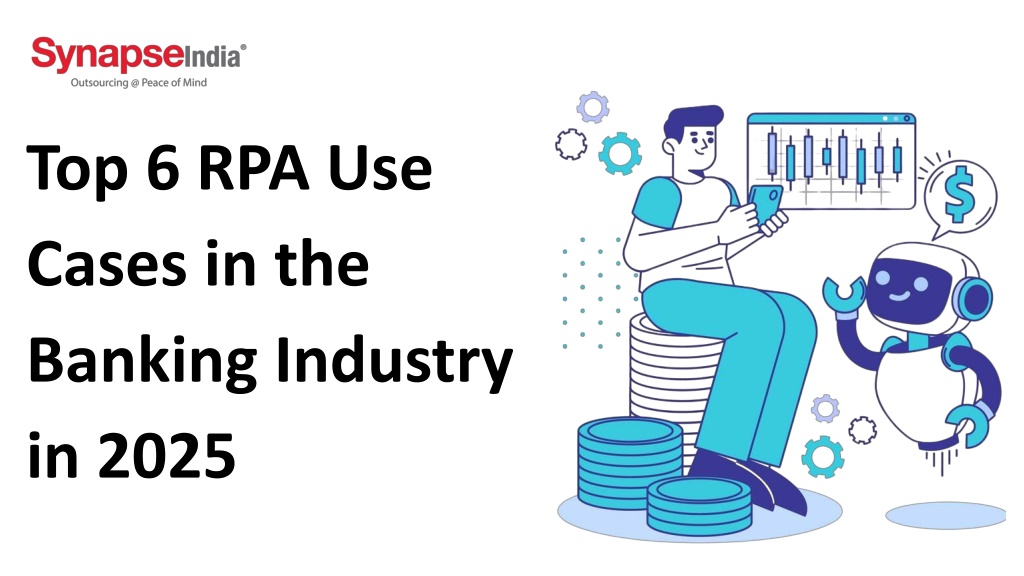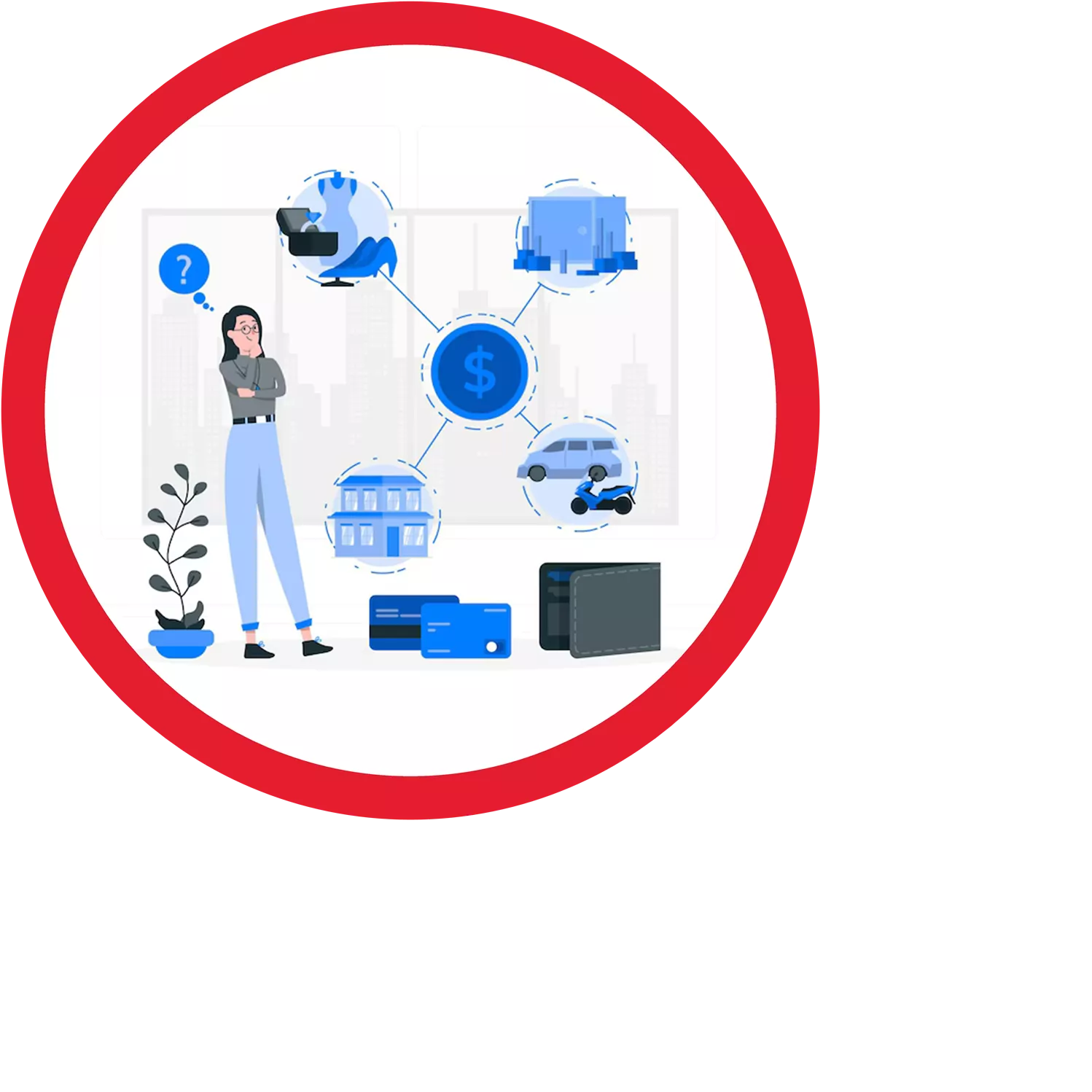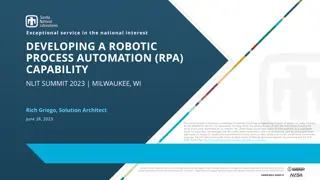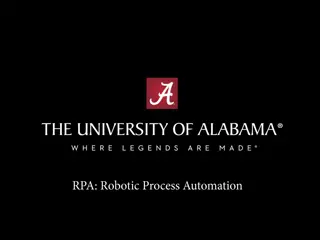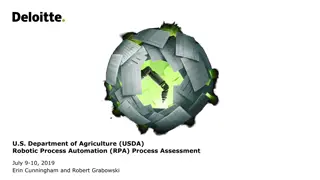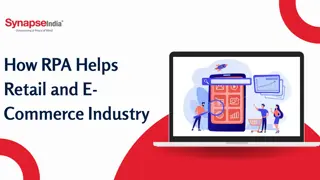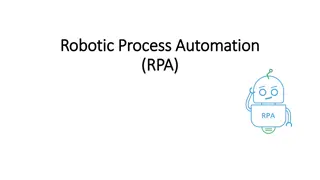RPA in Banking Industry for Loan Processing & Underwriting
Revolutionize customer interactions with RPA in Banking Industry, automating chatbots, query handling, and support workflows. Our AI-driven automation enhances response time, reduces operational costs, and improves customer satisfaction. Leverage sma
Uploaded on Mar 13, 2025 | 1 Views
Download Presentation

Please find below an Image/Link to download the presentation.
The content on the website is provided AS IS for your information and personal use only. It may not be sold, licensed, or shared on other websites without obtaining consent from the author. Download presentation by click this link. If you encounter any issues during the download, it is possible that the publisher has removed the file from their server.
E N D
Presentation Transcript
Top 6 RPA Use Cases in the Banking Industry in 2025
Introduction to RPA in Banking What is RPA? Robotic Process Automation (RPA) uses software bots to handle repetitive tasks. Why is RPA Important in Banking? Improves efficiency, reduces costs, enhances accuracy, and strengthens compliance. 2025 Banking Industry Trends: Increased automation adoption, AI-powered RPA, and regulatory-driven process improvements.
Use Case 1 Customer Onboarding Challenges: Manual document verification, slow KYC process, high error rates. How RPA Helps: Automates data extraction, identity verification, and form processing. Benefits: Faster onboarding, fewer errors, and enhanced customer experience.
Use Case 2 Loan Processing & Underwriting Challenges: Lengthy approval process, manual document validation, compliance risks. How RPA Helps: Automates document collection, risk assessment, and eligibility checks. Benefits: Speeds up approvals, ensures compliance, and improves loan accuracy.
Use Case 3 Fraud Detection & Risk Management Challenges: Increasing fraud attempts, slow detection, complex regulatory requirements. How RPA Helps: Monitors transactions in real-time, flags suspicious activities, and enhances compliance. Benefits: Minimizes fraud risks, ensures regulatory adherence, and enhances security.
Use Case 4 Account Reconciliation & Reporting Challenges: Manual reconciliation errors, delays in financial reporting, data inconsistencies. How RPA Helps: Automates reconciliation, matches transactions, and generates reports. Benefits: Ensures accuracy, saves time, and streamlines financial reporting.
Use Case 5 & 6 Compliance & Customer Support Automation Problem: Complex regulations, risk of non-compliance. Solution: RPA automates audits, document tracking, and compliance checks. Impact: Reduces penalties, ensures 100% regulatory adherence. Problem: High customer query volumes, slow response times. Impact: 24/7 support, faster responses, improved customer satisfaction.
